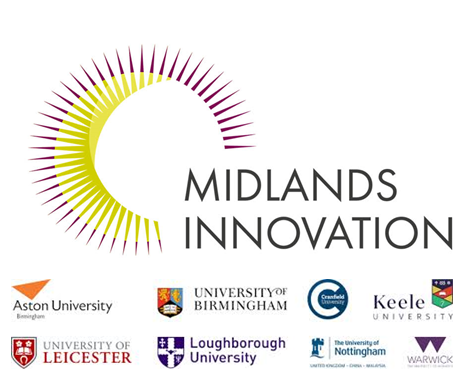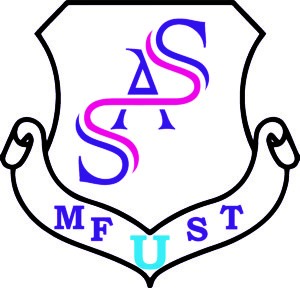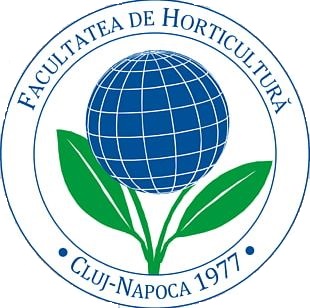Implementation of the Knowledge Triangle: Strengthening the Interaction between Research, Education and Innovation
AHEAD partners gathered good practices and case studies of higher education institutions’ participation in the knowledge triangle. The selected good practices and cases originate from different countries, including Italy, Poland, Romania, Russia and the United Kingdom. They highlight the political and socio-economic background that precondition success or hinder implementation of each good practice, and present in detail the institutional strategies chosen in response to this environment. Rather than providing ready-made blue-prints for action, these good practices offer a pick-and-choose menu of options that universities have to respond to various environments, national innovation systems and economic structures.
The Compendium includes 15 good practices for implementing the knowledge triangle.
Read the summaries of the good practices below and click here to download the Compendium.
|
|
STEAM House Birmingham City University, Birmingham, UK STEAMhouse is a new centre aimed at encouraging the collaboration of the arts, science, technology, engineering and maths (STEAM) sectors. It has been created in partnership with Eastside Projects, and is funded by the European Regional Development Fund and Arts Council England. STEAMhouse will drive innovation and research to create business solutions that fuel long-term economic growth. Its main objectives are: to demonstrate how the arts in combination with science can drive innovation; to provide collaborative thinking space to solve problems; to develop interdisciplinary skills and approaches; to help SMEs design and create new products; to match our knowledge to the challenges facing the city. |
|
|
Add+Vantage Coventry University, Coventry, UK The aim of the Add+Vantage scheme is to offer all students an employability module in every year of their study and to provide a wide range of choice to suit individual career aspirations. The Add+Vantage scheme of mandatory employability modules is designed to help students develop more of the practical skills and capabilities sought-after by employers. The main objective is to enable Coventry University students to be better prepared to “hit the ground running”, once in employment, contributing to organisations from day one. This initiative can add value to students’ higher education experience, complementing the skills and knowledge acquired through degree subjects and giving students an approach to enhance their employability.
|
|
|
Knowledge Transfer Partnership Birmingham City University, Birmingham, UK The aim of this good practice is to demonstrate how Knowledge Transfer Partnerships (KTP) enable a university to work together with the business community to deliver specific innovation projects through sharing of research, knowledge and skills. The specific objectives are: To demonstrate how Birmingham City University is working with a local business to identify and solve real business problems using creativity, innovative solutions and applied research to improve the performance and profitability of businesses; To show how KTP helps businesses to innovate, grow and improve their competitiveness and productivity through the better use of knowledge, technology and skills that reside within the UK.
|
|
|
Midlands Innovation Eight top-ranked universities in the UK Midlands Innovation (MI) is a research and innovation initiative that involves eight universities ranked among some of the top in the UK. The aim of MI is to build global hubs of research and innovation excellence, addressing topics where universities can add value in areas such as engineering, transportation, medical science and the humanities. The specific objectives are: To drive cutting-edge research, innovation and skills development that will grow the high-tech, high skilled economy of the Midlands and the UK through collaboration among Universities, Businesses and Research councils that fund and encourage research; To exploit the unique strengths and build on the rich history of collaboration of leading Universities across the Midlands; To help HE institutions to learn from each other through sharing of best-practice and create new growth opportunities within and between the institutions, with regional and national government, and in close partnership with business, industry and communities across the region and around the world.
|
|
|
Sannio Tech Consortium Public-private partnership in scientific research, Italy The Sannio Tech Consortium is a public-private partnership operating in the field of Scientific Research. It involves six research and academic institutions and six private companies. The Consortium develops networks with research centres and academic institutions in Italy and abroad, aiming at the development of an academic research market approach through technology transfer and business development processes. Thus, it plays a leading role in innovation and entrepreneurship, representing a link between the productive world and applied research and promoting technology transfer to SMEs to foster virtuous development dynamics in Central and Southern Italy.
|
|
|
Molise Start Cup A competition of business ideas, Campobasso, Italy The Molise Start Cup is a competition of business ideas promoted during the period of 2008-2016 by the University of Molise and organized in collaboration with the Chamber of Commerce of Molise (Unioncamere Molise), thanks to the support of the Economic Department of Employment Policies of the Molise Region. It aims at the promotion of innovative companies and business ideas at local level through the exploitation of research results with a view to fostering entrepreneurship and innovation.
|
|
|
Integrated Management of Orchards Foundation Edmund Mach di San Michele all’Adige, Italy The Foundation Edmund Mach di San Michele all’Adige provides diagnosis and assessment services on agronomic management at farm level (pruning, thinning, force management, nutrition, irrigation) and at territorial level (warning systems in the disease management, e.g. pheromone traps). The good practice implemented by the Foundation illustrates how education, research, and technology transfer can be integrated in the activities of a single institution, focusing on a specific priority economic sector and working in cooperation with local and regional stakeholders.
|
|
|
Experimental Centre for Plant Nursery In cooperation with University of Pisa, University of Florence and the National Research Council, Italy The Experimental Centre for Plant Nursery (Centro Sperimentale per il Vivaismo / Ce.Spe.Vi, now known as Green Economy Agriculture / GEA) is a unique research centre based out of Pistoia, Italy. Its objectives include: carrying out scientific research and supporting entrepreneurship in the sectors of sustainable agriculture, renewable energy, circular economy, and wellbeing of citizens in cooperation with universities, research institutions, public bodies and private companies. The Centre implements a number of activities related to: Innovation in the agricultural systems; Territorial enhancement; Promotion of local products; Environmental protection; Protection of health and wellbeing; Improvement of the quality of life through medical and pharmaceutical research; Enhancement of environmental literacy through school education.
|
|
|
Student Entrepreneurship Society University of Medicine, Pharmacy, Science and Technology of Târgu Mureș and all other accredited HEIs in Romania The objectives of the Student Entrepreneurship Society are: To promote quality education that meets the requirements of the labour market and to expand collaboration with the economic and socio-cultural environment; To create an institutional framework favourable to the development and encouragement of entrepreneurial spirit among the university students; To support students who want to transform a business idea into a start-up by organizing mentoring and supportive activities in the field of entrepreneurship; To encourage mentor-student collaboration with a view to consolidating and developing practical professional skills needed for future higher education graduates.
|
|
|
Thinkubators University of Medicine, Pharmacy, Science and Technology of Târgu Mureș, Romania The Thinkubator is an unique project of the University of Medicine, Pharmacy, Science and Technology of Târgu Mureș (UMFST) whose mission is to inspire, enable and connect people to make a positive impact in the region. The aim of Thinkubator project is to promote interest, knowledge and competencies in entrepreneurship and innovation amongst creative students and early stage entrepreneurs. The strategic objectives are: To strengthen the link between the university and the economic environment with a view to increasing economic competitiveness in the creative industries and the sectors of Information Technologies and Communications; To utilize the existing economic and human potential in the area by focusing on innovative activities; To develop competencies, entrepreneurial mindset and innovative ideas.
|
|
|
Centre for Project Management and Technology Transfer University of Agricultural Sciences and Veterinary Medicine Cluj-Napoca, Romania The objectives of the Centre for Project Management and Technology Transfer are: Training and development of human resources involved in project implementation; Initiating, promoting and managing inter-, multi- and transdisciplinary collaboration in project implementation, providing the optimal framework for participation of the academic community at the university; Supporting the achievement of the institution’s performance indicators; Applying the university development strategy through participation in programs related to education, research, training, development of innovation and entrepreneurship; Informing and advising potential project beneficiaries and promoters on the programmes funded by the Structural Funds; Stimulating the technological transfer between the university and the socio-economic environment through the development of research, development or innovation projects in partnership with structures/ entities from the external environment.
|
|
|
Spherik Accelerator Babes Bolyai University, Technical University of Cluj-Napoca, Spherik accelerator space in Cluj Napoca, Romania Spherik accelerator has the objectives to: Translate the innovation capacity we all have as human beings to real solutions; Create a virtual environment where future business and social solutions based on emerging technologies can be ideated, visualised and simulated; Speed up the time from idea to market by catalysing innovation processes; Create an environment where the technology debate and its impact on our social and business worlds of the future is stimulated; Excite the youth about their future career prospects by showing them how the world they will operate in will work; Convert strategy into action.
|
|
|
Knowledge and Technology Scouting University of Lodz, Poland This practice was developed as part of the project “Scouting – active system for monitoring and evaluation of research works’ market potential as the key to cooperation between academia and entrepreneurs”. The objectives of the practice are: To enhance the university’s capabilities regarding cooperation with entrepreneurs through development of an innovative system for identification, monitoring and evaluation of the commercial potential of research results; To increase the University capabilities to gain knowledge related to its current commercial potential; To create at the University an environment conducive to knowledge commercialization. This good practice aims at theoretical and practical training of staff specifically qualified to assess and promote the commercialization of research results and the transfer of technology (boundary-spanning personnel).
|
|
|
Student Centre for Innovation and Technology Transfer Poznan University of Technology, Poland This good practice presents a solution developed within the Centre for Innovations, Development and Technology Transfer at the University of Technology in Poznan for increasing the effectiveness of cooperation between science and business communities. In particular, it focuses on the SCITT model (Student Centre for Innovations and Technology Transfer), which supports the technology transfer process by: Selecting innovative ideas from students, including PhD students; Estimating their commercial success; and Establishing business partnerships with representatives of the academic community.
|
|
|
University-Business Cooperation for Development of Engineering Qualifications ITMO University and The Diakont Group, Russia This good practice is implemented by the Saint Petersburg National Research University of Information Technologies, Mechanics and Optics (ITMO University, Russia) and The Diakont Group (Russia) - one of the world leaders in R&D and in production of high-tech security equipment for the energy, pipeline, automation, and manufacturing industries. The main objective of this practice is the creation of a unique, practice-oriented system of education and training, based on a close-knit collaboration between a University and an industry leading company with the goal of developing relevant competences, enhancing students’ employability, and implementing joint innovative science projects. |












